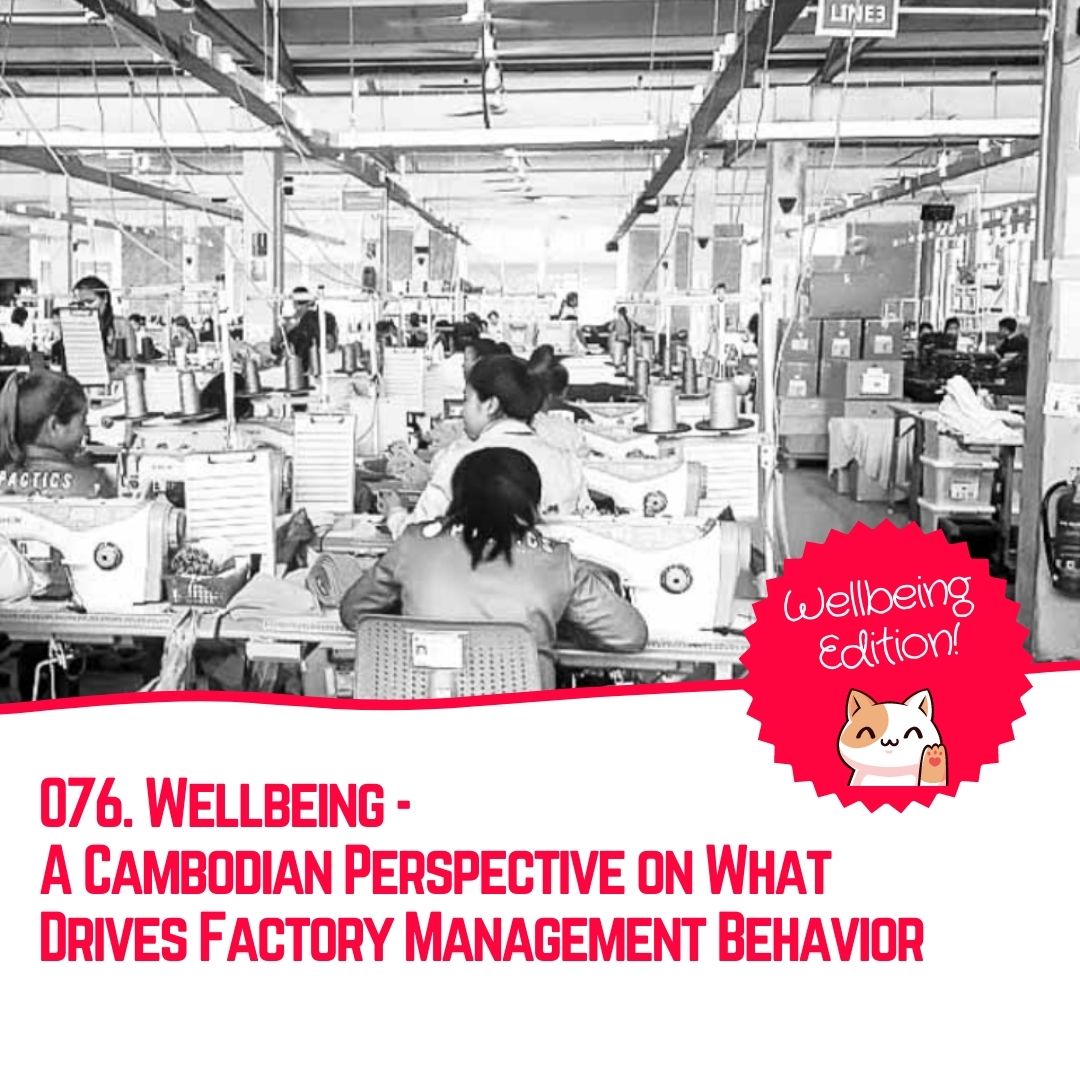In part two of our conversation with Dr. Divya Jyoti, a lecturer at De Montfort University in Leicester, Divya tells us about her research findings. How do the codes of conduct put in place by buyers for suppliers create hidden work for workers on the factory floor? How does something intended to make garment factories a nicer place to work actually end up creating an extra time squeeze? What would be a better alternative? Is the problem with the codes of conduct themselves, or how they’re implemented? And how can activists and labor rights advocates be effective allies?
Interested in learning more about Divya’s research? Email her c/o [email protected]

This is part one of our conversation with Cannon Michael, President and CEO of Bowles Farming Company. He’s also a founder and board member...

We can’t talk about wellbeing on the production floor without also talking about factory management. What drives the behavior of factory management? What are...

As a result of our collaboration with and support from GIZ FABRIC we had the immense good fortune of connecting with Edwin Keh. Edwin...